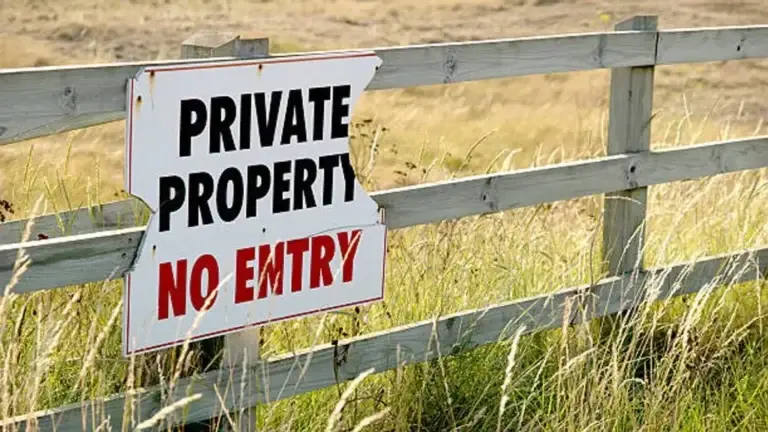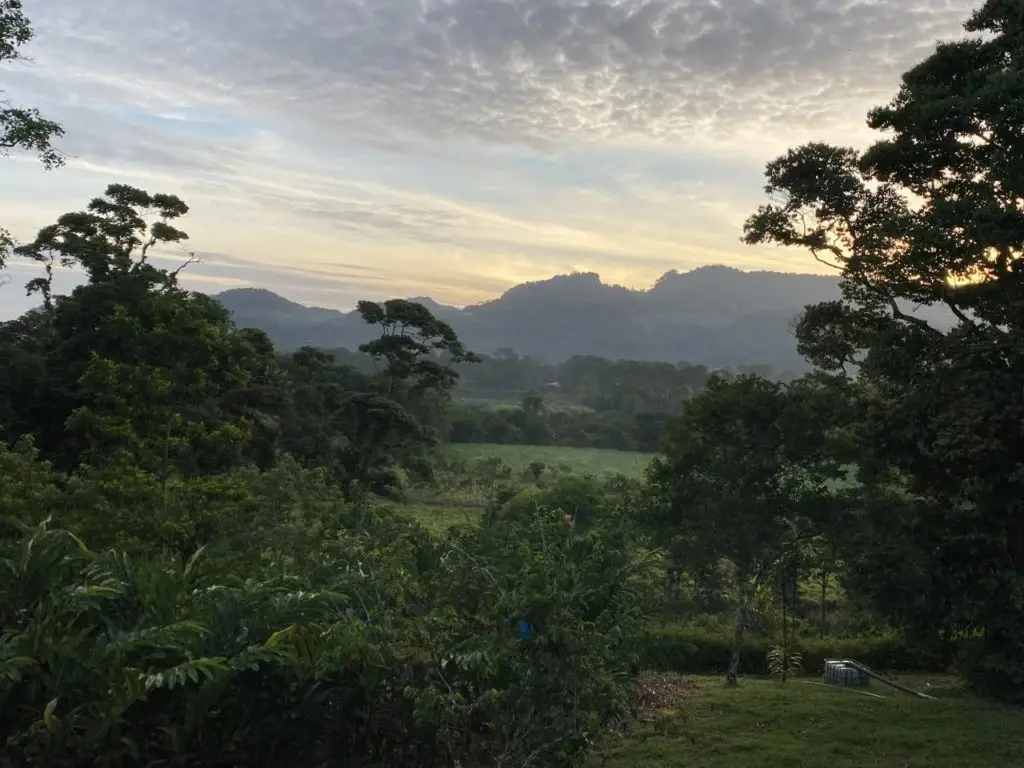Squatters and Adverse Possession in Costa Rica.
Adverse possession in Costa Rica, called usucapión in Spanish, allows a person to gain ownership through long-term possession. It applies when someone holds property peacefully, publicly, and continuously for several years. The law recognizes that property rights can come not only from registration but also from consistent and lawful possession.
The term squatter is often used to describe people living on land that is not theirs. However, squatters rights in Costa Rica are not automatic. The law distinguishes between illegal squatters and lawful possessors. Only those who occupy land peacefully, in good faith, and for the required legal time may claim ownership through usucapión. Violent or recent occupations never create legal rights.
Costa Rican Civil Law protects private property but also recognizes the social function of land. This means that ownership should serve a productive and legitimate purpose. Therefore, the system rewards honest, stable possession—not opportunistic or forceful occupation. This article explains how adverse possession works, when it applies, and what rights a possessor may gain under Costa Rican law.
The Legal Right to Possession in Costa Rica:
In Costa Rica, possession is not just a fact — it is a legal right. The Civil Code protects possession as the power to hold and control a property. This protection applies even before ownership is obtained.
A person may acquire possession in two ways: by receiving it from the owner (tradition), or by taking it directly (occupation). Once a person holds property peacefully and publicly for one full year, the law grants them the right to possess. This right allows them to defend their possession in court through interdictos (possessory injunctions).

Possession can be exercised in one’s own name or on behalf of another. However, only possession in one’s own name can lead to ownership through usucapión. The law presumes that whoever possesses a property has a legal right to do so, unless proven otherwise.
To be valid, possession must be continuous, public, and peaceful. It must also be in good faith — meaning the possessor believes they have a objective right to own the property. If possession begins in good faith, later doubts do not destroy it. Good faith ends only when the possessor learns that their right does not exist, or when they are formally sued.
Finally, the Civil Code presumes that all possession is in good faith unless proven otherwise. Possession also continues in the name of the person who began it. This means that successors, heirs, or transferees can add the time of their predecessor to their own, completing the term needed for adverse possession in Costa Rica.
Civil Prescription under the Costa Rican Civil Code:
Adverse possession in Costa Rica is governed by the Civil Code. It is called prescripción positiva or usucapión. Through this legal process, a person who possesses property peacefully, publicly, and in good faith for a long time can acquire ownership.
To obtain ownership through prescription, three elements must exist:
(1) a valid legal title (justo título),
(2) good faith (buena fe), and
(3) continuous, public, and peaceful possession.
When these conditions are met for ten years, the possessor may legally request ownership.

If possession was violent, hidden, or merely tolerated, it is not valid for prescription. The law protects only open, stable, and legitimate possession. Violence or secrecy interrupts the time required.
If the possessor holds a title that can be registered, the time for prescription counts against third parties only from the date of registration. This rule protects good-faith purchasers who rely on public records. Still, possession without registration can produce effects between the possessor and the previous owner.
The possessor may also add the time of their predecessor to complete the ten-year period. This continuity rule benefits heirs, buyers, or family members who have maintained peaceful possession of the same property.Is Civil Adverse Possession in Costa Rica even possible?
Although the Civil Code formally recognizes adverse possession in Costa Rica, its application to registered properties is almost impossible. The National Registry provides strong legal protection to recorded property ownership. Under Costa Rican law, registration creates a presumption of ownership that cannot be defeated by mere possession. Article 861 of the Civil Code makes this clear: possession based on a title counts against third parties only from the date of registration. This rule protects buyers who rely on public records. As long as a valid registration remains in force, possession cannot prevail over the registered title.
Because of this system, civil prescription applies mainly to unregistered properties or to cases where the title on record is invalid or erroneous. In every other case, the registered owner is protected by the principles of publicity, good faith, and legal certainty that guide Costa Rican property law.
In practice, civil usucapión of registered property is more theoretical than real. The law’s structure makes it nearly impossible for possession alone to override an existing inscription. This principle ensures stability in land ownership, but it also limits the role of civil prescription to rare and exceptional cases.
Agrarian Adverse Possession in Costa Rica:
Costa Rica recognizes a second and very different form of adverse possession: the agrarian prescription. This system is not based on civil ownership but on the social function of land. It is governed by the Law of Lands and Colonization No. 2825, created to promote agricultural use and rural settlement.
Under this law, a poseedor en precario is a person who, by necessity, occupies and works rural land peacefully, publicly, and continuously for subsistence. When this occupation continues for ten years, the possessor may obtain formal ownership through a judicial process before the Agrarian Court. The purpose is to protect those who make the land productive and support their families through it.
Unlike the civil system, agrarian prescription does not require a registered title or legal document. The focus is on social need and the effective use of the property. The land must serve a productive and social purpose
Jurisprudence of the Agrarian Tribunal:
Costa Rican case law has consistently recognized that agrarian possession deserves special protection. The Agrarian Tribunal interprets the Law of Lands and Colonization in light of the Constitution, which gives property a social function.
Early decisions, from 2005 to 2007, established that a person who works the land peacefully and productively for more than ten years acquires a legitimate interest in ownership. These rulings confirmed that agrarian possession is not a civil right but a socially protected status linked to production and family livelihood.
In later cases, such as Resolution 00100-2019, the Tribunal clearly distinguished between a civil precarious possessor and an agrarian precarious possessor. The first holds land by tolerance or lease; the second occupies rural land by necessity and cultivates it. The court stated that not every occupant is a usurper, and that rural occupation motivated by need and productive work can generate legitimate rights.
More recently, Resolution 00601-2024 reaffirmed this principle. The court ruled that possession, even in bad faith and productive use fulfills the purpose of the agrarian law. It recognized that protecting such possession prevents social conflict and promotes efficient land use.
Civil vs Agrarian Prescription - Key Differences:
Costa Rican law recognizes two systems of adverse possession: one civil and one agrarian. They share the idea that long-term, peaceful possession can create rights, but they serve very different purposes.
The civil system protects private property and legal certainty. It requires good faith, a valid title, and ten years of continuous possession. In practice, it applies only to unregistered or irregular properties. For land already registered, civil usucapión is almost impossible.
The agrarian system protects social justice and rural productivity. It allows farmers and settlers to claim ownership after ten years of peaceful and productive occupation, even without a registered title. The focus is on need, work, and the social function of land.
Legal Protection of Possession and Ownership:
In Costa Rica, possession is a protected right. A person who has held property peacefully and publicly for more than one year may defend that possession through interdictos, or possessory injunctions. These actions prevent illegal disturbance and recognize possession as a legitimate legal status, even before ownership exists.
At the same time, registered owners also have legal remedies to protect their property. They may seek help from the police in cases of recent invasion, file administrative evictions or bring civil actions such as interdictos to protect their possession. If the statute runs for the “interdictos”, a civil action known as the acción reivindicatoria, can be filed to defend ownership and recover possession.
Practical Considerations for Landowners:
Foreign buyers and investors often face challenges when purchasing real estate in Costa Rica. Many properties have long histories of informal possession or rural occupation. Understanding the difference between lawful possession and unlawful squatting is essential before closing any deal.
Before buying, always verify the registration status of the property in the National Registry. Check for recorded owners, annotations, or pending judicial actions. A property with a clear title provides legal certainty and protects you from future possession claims.
In rural areas, investigate whether someone has occupied or worked the land for many years. If the occupation has lasted more than ten years and meets the legal conditions, that person may have rights under the agrarian prescription system. A thorough on-site inspection and legal review can reveal potential risks.
For urban or coastal properties, due diligence is equally important. Hire a bilingual attorney to verify ownership, boundaries, and land use regulations. Property due diligence, is extremely important, and helps prevent conflicts with occupants and ensures compliance with Costa Rican property law.
Conclusions:
Adverse possession in Costa Rica combines legal tradition with social responsibility. The Civil Code protects registered ownership and legal certainty. At the same time, the Agrarian Law defends the social function of land and rewards productive use.
In civil matters, usucapión of registered property is almost impossible. The Registry creates a strong presumption of ownership that possession alone cannot defeat. Only in rare cases—such as invalid or erroneous registrations—could civil prescription succeed.
In contrast, the agrarian system remains active and relevant. It allows small farmers and settlers to gain ownership through peaceful, productive occupation that fulfills a social purpose.
Dr. Christopher Pirie Gil.